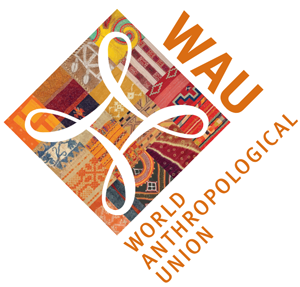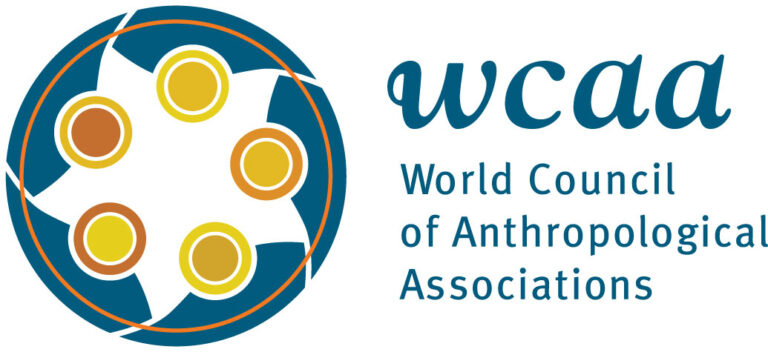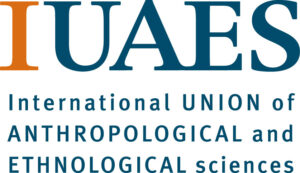フェアトレードを社会のなかに埋め込む
箕曲在弘
東洋大学
イギリスやスイスといった西欧諸国に比べると、日本における「フェアトレード」は際立ってプレゼンスが低い。にもかかわらず、フェアトレードの「交易を通じて貧困を削減する」というコンセプトが社会運動や国際開発に関心を寄せる日本の研究者にとって目新しいものであったことなどから、2000年以降、数々の学際的な研究プロジェクトが誕生した。アジア経済研究所では開発社会学者の佐藤寛が、国立民族学博物館では文化人類学者の鈴木紀が主宰して数年に及ぶ共同研究を行ってきた。一方、京都大学の農学系研究者が中心となったオルタトレード研究会は科学研究費補助金を継続的に受けながら今日まで10年間以上続いている。
こうした日本におけるフェアトレード研究は実践者を巻き込んだ点が特徴的である一方、フェアトレードの受益者である生産者の生活について深く掘り下げた調査研究はほとんど行われてこなかった。もちろん、多くの者がその必要性を認識してはいたものの、長期間、生産者の下でフィールドワークをするという恵まれた機会を得られた者は、上記の共同研究がおこなわれていた期間ではほとんどなかった。こうした中で、文化人類学を専攻する大学院生として、長期間のフィールドワークを敢行しようとしていたわたしは、フェアトレードの生産者への影響を問う調査研究の必要性に気づき、東南アジアのラオスに住むコーヒー生産者のもとでの約1年半のフィールドワークを実施したのである。
* ******
アメリカではサラ・ライオン(2010)がグアテマラのコーヒー生産者を、マーク・モベルグ(2008)がベリーズのバナナ生産者を、サラ・べスキー(2013)がインドの茶プランテーション労働者を、イギリスではピーター・ルチフォード(2007)がコスタリカのコーヒー生産者を対象とした民族誌を次々と刊行してきた。これに比べると日本語におけるフェアトレード関連民族誌の刊行はまったく追いついていない。
このようななかで私は東南アジアのラオスのコーヒー生産者を対象とした民族誌を日本語で刊行した(箕曲 2014)。欧米の研究者が、フェアトレードが盛んなラテンアメリカの生産者を主な対象とする一方、わたしはあえて欧米の研究者にとっては馴染みの薄い東南アジアの生産者を選んだ。それは日本と交易上の関係が強いということ以上に、ラテンアメリカで生まれたフェアトレード認証制度が、異なる地域に導入された場合、いかなる作用をもたらすかを明らかにしたかったからである。
*******
モチ米の栽培が盛んな内陸国のラオスでは、フランス植民地期の1910~20年代に、コーヒーの苗木がフランス人によって南部のボーラヴェーン高原にもたらされた。その後、1975年の社会主義政権樹立以降、農業の集団化が行われた際に広範囲にコーヒー栽培が広まった。その後、1990年代のラオス政府による実質的な焼畑禁止を受けて、同地の農家の主な生業はコーヒー栽培となった。こうした換金作物への依存により、農家は自然環境のリスクに加えて、市場環境のリスクにも対応しなくてはならなくなる。そこで、国際NGOのオックスファムやフランス政府といった援助機関から多額の資金が流入することにより、フェアトレードを含む農村開発が1990年代以降連綿と行われてきた。
当初、わたしはフィールドワークを行う前から、村落社会の独自の権力関係やローカルな商取引慣行があるなかで、「民主的」な協同組合を設立することが、彼らの既得権を脅かすために、さまざまな形で既存の勢力との摩擦を引き起こすだろうと予想していた。この予想はある程度あたり、フィールドにおいて金と権力をめぐるダイナミックな人間模様が明らかになった。
とりわけ興味深かったのは、フェアトレード協同組合に対する仲買人の優位性である。フェアトレードによる取引価格が仲買人のものより高かったとしても、仲買人との取引を止めた農家は一人もいなかった。この理由を探っていくと、仲買人が農家の生活上のニーズに柔軟に対応しながら農家と取引を行っている事実が分かった。農家は1年のうちコーヒーの収穫期である3~4か月の間しかまとまった現金収入を得られない。この間に次の収穫期までに必要なコメや生活必需品をまとめ買いするのである。したがって、多くの農家が次の収穫期の直前くらいにはすべての現金を使い切ってしまうために、この時期に家族内の誰かが大きな病気や怪我をした場合、借金して医療費を賄わねばならなくなる。銀行から容易に融資を受けられない小規模農家は、このような状況に陥ると懇意にしている仲買人に金を借りるのである。この際、仲買人は収穫期に現金を貸与した農家から優先的にコーヒーを受け取る権利を得るのである。この時の金利は月8~10%程度となり、銀行で融資を受ける場合の約7~9倍にも上る。
このような農家と仲買人との取引関係が構築されているために、財政基盤の脆弱な協同組合は、なかなか仲買人に太刀打ちできない。仲買はピックアップトラックと買付資金さえあれば誰でも参入できる商売であり、近年のコーヒー生産量の増加に伴い、仲買人はボーラヴェーン高原のコーヒー生産地においてリゾーム状に広がっている。一方、フェアトレード協同組合は官僚制のように組織が階層化されており、意思決定と資金の流れは仲買人ほど柔軟ではない。この結果、農家は仲買人に毎年、一定量のコーヒーを売り続けるのである。
このように既存の取引のメカニズムのなかにフェアトレードの取引がどのように位置づけられているのかを明らかにするアプローチは、フェアトレードの取引を、その取引が行われている社会的文脈の中に位置づける試みだといえる。
******
今日、農産物市場における透明性を確保するために認証や監査をもとめるグローバルな流れのなかで、民族誌を記すことにより発展途上国の生産者が被る課題を詳らかにするという作業は、極めて重要である。フェアトレードはこうした現代的な課題を象徴する運動・制度である。わたしはフェアトレードを社会のなかに埋め込むことにより、こうした運動・制度が孕む論理の限界と可能性を検討するための素材を、関心のある多くの学会内外の人びとに提供することを意図して民族誌を書き上げた。
学会外のアクターと連携し、「市民社会」の創造(と問い直し)に寄与する実践人類学(あるいは応用人類学)の必要性は日本においてもこれまで以上に高まっているものの、日本における実践人類学のプレゼンスは、アメリカに比べるとまだ低い。だが、自ら実践人類学として位置づけているわけではないが、移民や難民、災害、医療、障がい者や高齢者の福祉を対象とした民族誌は日本でもつぎつぎと刊行されており、これらの成果は見方によっては学会内ばかりでなく、学会外へのインパクトも大きいはずである。フェアトレードばかりでなく、こうした市民の関心が高い分野における人類学的な探求は、今日の日本において緒に就いたばかりだといえる。
Embedding Fair Trade into a Society
Arihiro Minoo
Toyo University
Compared with Western countries such as the UK or Switzerland, in Japan, fair trade lacks popularity. Nevertheless, because the concept of alleviating poverty through trade has fascinated some Japanese social scientists, who are interested in the related international developments and social movements, since 2000, several interdisciplinary research projects have been created. For example, Kan Sato, a developmental sociologist at the Institute of Developing Economies and Motoi Suzuki, a cultural anthropologist at the National Museum of Ethnology, conducted joint research projects over several years on the meanings of fair trade practices and philosophies in our globalized world. Also, the Alter Trade Research Group, which was organized by agricultural economist Koichi Ikegami, has been studying this topic for a decade after receiving a grant from the Japanese Society for the Promotion of Science.
A distinctive feature of these Japanese research projects is that they include fair trade practitioners such as those engaged in fair trade businesses. However, in the empirical studies, there has been a serious lack of long-term fieldwork focusing on the fair trade producers’ side. Although many scholars have recognized its necessity, no one had the chance to conduct long-term fieldwork while the research projects were being organized. In this context, I, a postgraduate student specializing in cultural anthropology, began one and a half years of fieldwork with small-scale coffee producers in Laos, a Southeast Asian country.
*********
In the US and UK, ethnographies on fair trade farmers and workers have been frequently published up to present. These include studies on coffee producers in Guatemala by Sarah Lyon (2010), banana producers in Belize by Mark Moberg (2008), tea plantation workers in India by Sarah Besky (2013), and coffee producers in Costa Rica by Peter Luetchford (2007). In comparison, Japanese ethnographies on fair trade have been scarce.
This is the situation in which I published a Japanese-language ethnography on the economic and social impacts of fair trade on small-scale producers (Minoo 2014). While scholars in the US and UK targeted small-scale producers in Latin America, where fair trade is actively conducted, I dared to choose producers in Southeast Asia, where fair trade is little known to either officials or farmers as a tool for poverty alleviation. This is not only because Japan and Laos maintain a robust relationship in terms of trade and international development, but also because I attempted to examine how fair trade functions in a case where it was introduced to a region outside of Latin America, where the certification system of fair trade had already been set up.
*********
In Laos, a landlocked country where glutinous rice is widely cultivated, coffee seedlings were brought to the Bolaven Plateau by French colonialists in the 1910s. Then, after Laos became a socialist country in 1975, coffee planting spread in this area under the collectivization policy for farming. In 1990, when the government forced farmers to cease slash and burn cultivation, they came to plant coffee as their main livelihood. Such dependency on coffee left them exposed to risks such as fluctuations in market prices and natural disasters. Rural development projects, including fair trade, have been conducted continually since the 1990s, being supported by various funds from the French government and Oxfam, an international non-governmental organization.
Firstly, before I conducted the fieldwork, I assumed there were various conflicts between the newly constructed “democratic” fair trade cooperatives and existing parties such as village representatives or middlemen, because the former threatens the vested interests of the latter. This supposition was partly correct and I was able to elucidate the dynamic politics among the actors concerning money and power in the field.
The most interesting point is the advantage that middlemen have over fair trade cooperatives. Even if a cooperative purchased coffee at a higher price than the middlemen, no farmers stopped selling it to the middlemen. Upon inquiring into the reason why they continued to do this, I found that the middlemen traded with the farmers while responding to their needs flexibly. The farmers earned cash income for the collective for only four months in the harvest season. Thus, they purchased necessities in bulk, such as an amount of the rice necessary until the next harvest season. As such, many farmers ran out of cash before the next season and so, if a member of their family ended up suffering from a serious illness or injury, they had to cover the medical expenses by borrowing money. In this case, generally, farmers who could not take out a loan from an official bank were forced to borrow money at a high interest rate (8–10 percent per month) from a middleman with whom they had become acquainted. In exchange for the money, the middleman acquired the right to purchase their coffee preferentially.
Because such local transaction practices are constructed between the farmers and middlemen, a cooperative, which usually has weak financial foundations, is no match for the middlemen in terms of broader customer acquisition. Because anyone who has some funds to purchase coffee and a pickup truck can start their own brokerage, it can be said it is a business with a low barrier to entry. Thus, along with an increase in coffee production in recent years, the middlemen’s trading domain is spreading to cover the coffee production area of the Bolaven Plateau. On the other hand, because a fair trade cooperative is hierarchically organized in a bureaucratic form, it is not flexible in terms of financial flow and decision-making processes. Consequently, the farmers continue to sell a certain amount of coffee to the middlemen.
This approach, which revealed how fair trade transactions are situated in the mechanism of the existing trade practices between farmers and middlemen, constitutes an attempt to situate the transactions of fair trade cooperatives in the social context of the place where their trading practices are conducted.
*********
At present, when certifications and audits are necessary to ensure transparency and traceability in the globalized agricultural market, it is very important to create ethnographies on the issues that producers in developing countries face. Fair trade is a symbolic movement and institution that fits current trends. I wrote up this ethnography with the intention of providing materials to help examine the possibilities and limitations of the logic that this movement and institution carry. I achieved this goal by embedding fair trade in a certain social context for the sake of people inside and outside of the anthropology community who are interested in the concept.
It is necessary in applied anthropology to collaborate with actors inside/outside of academism and to contribute to the creation (or re-consideration) of “civil society,” and while this has been happening in Japan, it is still rare compared with the US. However, various ethnographies concerning migration and refugees, disasters, medical issues, and the social welfare of elderly and disabled people have been published in Japan, and the authors located these pieces in the field of applied anthropology. I suppose these ethnographies have had somewhat large impacts, both outside and inside of academia. Various anthropological inquiries into topics that citizens are highly interested in, including fair trade, are currently underway in Japan.
References
Beskey, Sarah. 2013 The Darjeeling Distinction: Labor and Justice on Fair-Trade Tea Plantations in India, University of California Press.
Luetchford, Peter. 2007 Fair Trade and a Global Commodity: Coffee in Costa Rica, Pluto Press.
Lyon, Sarah. 2010 Coffee and Community: Maya Farmers and Fair-Trade Markets, University Press of Colorado.
Minoo, Arihiro. 2014 The Anthropology of Fair Trade: The Everyday Life and the Cooperatives of Coffee Farmers in the Bolaven Plateau of Southern Laos, Mekhong Publishing. (箕曲在弘『フェアトレードの人類学』めこん)
Moberg, Mark. 2008 Slipping Away: Banana Politics and Fair Trade in the Eastern Caribbean, Berghahn Books.



